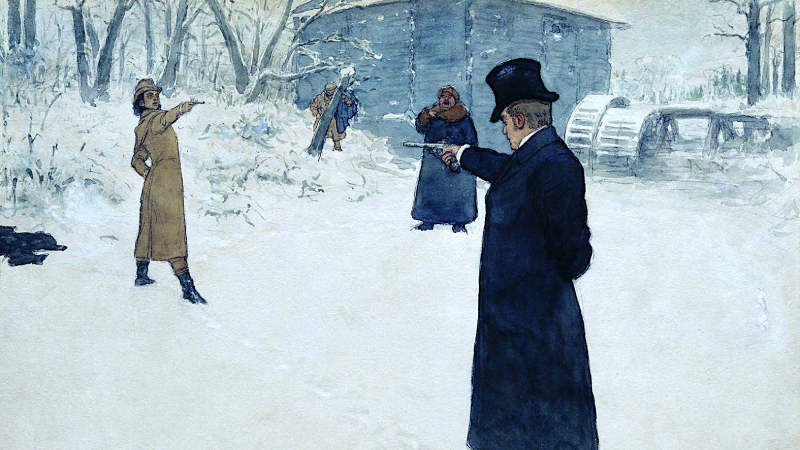-
5 Things to Know about EUGENE ONEGIN
By COC StaffPosted in 24/25 Season
Pyotr Ilyich Tchaikovsky’s adored lyric opera Eugene Onegin is one of the undisputed romantic masterpieces of the canon, beloved for its passionate score and simple yet achingly tragic storyline. The tale of a dashing aristocrat driven to remorse—first, for the ill-conceived duel that kills his best friend, and later for his rejection of the young woman who loves him—Eugene Onegin is once again brought to life on our stage in Robert Carsen’s globally acclaimed production, last seen at the COC in 2018.
Read on to discover 5 Things To Know about this timeless meditation on friendship, love, fate, and regret—and join us at the Four Seasons Centre for the Performing Arts when Eugene Onegin arrives in May 2025!
SUBSCRIBE NOW
The original "superfluous man"A classic of Russian literature, Alexander Pushkin’s 1837 novel-in-verse Eugene Onegin inspired numerous subsequent literary heroes who embodied the qualities of the “superfluous man”: a version of the Byronic hero—usually talented, wealthy and bored—who shuns social norms. Its eponymous protagonist is an arrogant, cynical dandy who rejects the young woman who loves him before departing to escape his regret at killing his friend in a duel—only to realise, too late, the folly of his actions. The novel tackles themes ranging from friendship and self-discovery to 19th-century Russia’s class system.
Doubtful beginnings
The idea for an operatic adaptation of Pushkin’s verse novel was originally suggested to Tchaikovsky by the opera singer Yelizaveta Lavrovskaya. Although initially uncertain about Onegin’s operatic potential, Tchaikovsky was won over by its expressive beauty, compelling character development, and astute social commentary, ultimately sketching a scenario based on original scenes and verses in a single night. The resulting opera is episodic, featuring significant moments from Onegin’s life in lieu of a continuous storyline—a conceit that this production amplifies by framing the story as a series of flashbacks.A pivotal performance
Eugene Onegin premiered in March 1879 at the Maly Theatre, Moscow, performed by students of the Moscow Conservatory. It was restaged two years later at the Bolshoi Theatre. Although the opera was slow to meet with success beyond Russia’s borders, the first performance in Hamburg, in January 1892, became something of a turning point. Conducted by Gustav Mahler, the performance was punctuated with applause after every scene and multiple curtain calls for the composer, whose work would go on to become an established part of the repertory.

Musical highlightsTwo of the opera’s most famous arias are sung by the characters closest to—and most deeply wounded by—the hero Onegin. The first, popularly known as Tatyana’s Letter Scene, is a show-stopping solo that explores the depth and strength of the young Tatyana’s love for Onegin as she composes a letter to express her true feelings to him. Later, in Act II, Onegin’s friend Lensky is wistful and resigned as he sings “Where have you gone, O golden days of my spring?”—wondering if his beloved will forget him should he die in the impending duel.
Many, many leavesCanadian director Robert Carsen’s stunningly minimalistic staging of Eugene Onegin premiered in 1997, and was subsequently hailed as “a piece of contemporary operatic history” by The Globe and Mail when it arrived at the COC in 2018. Widely recognizable for its evocative period costumes, sparse furniture, and many, many autumnal leaves, this is a true opera-lover’s production that audiences old and new won’t want to miss.
Eugene Onegin runs from May 2 - 24, 2025 at the Four Seasons Centre for the Performing Arts.
